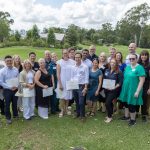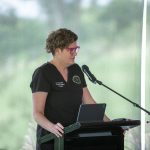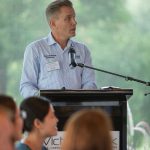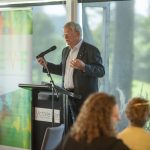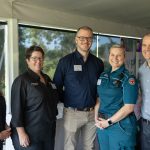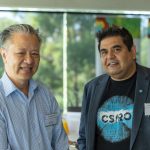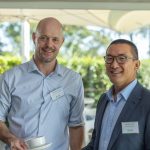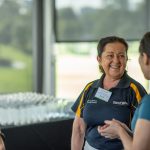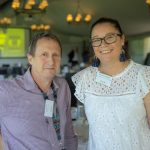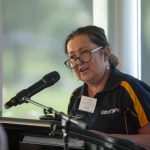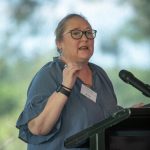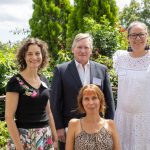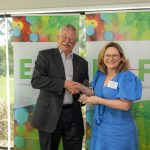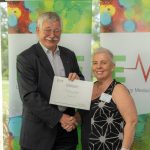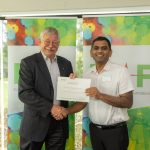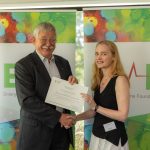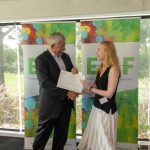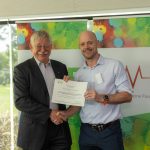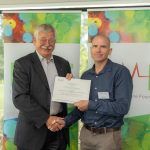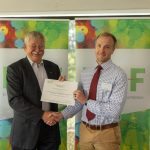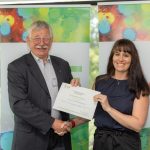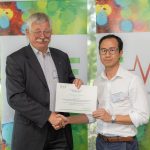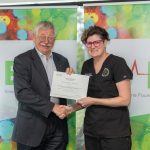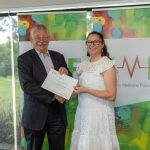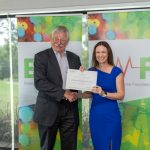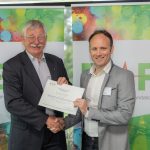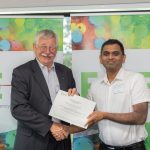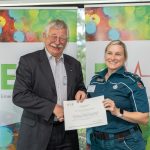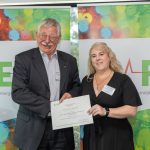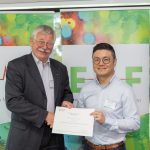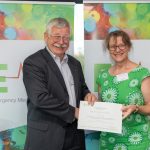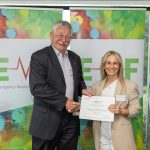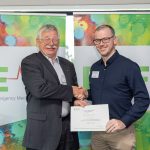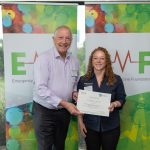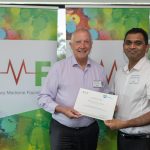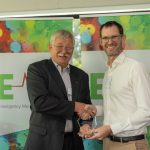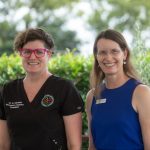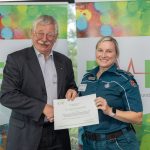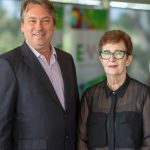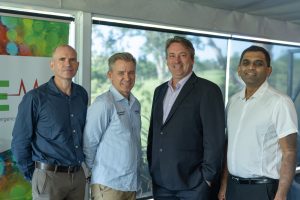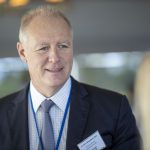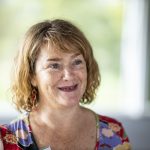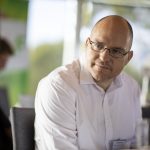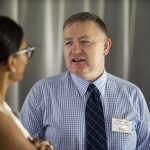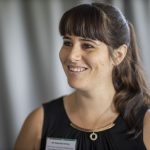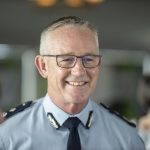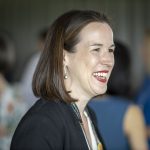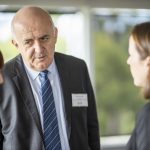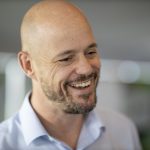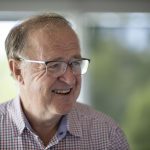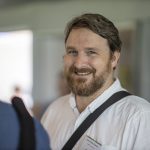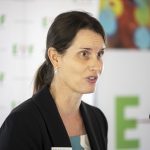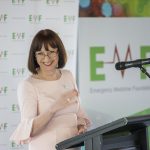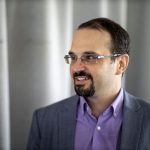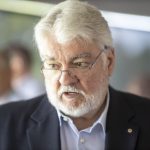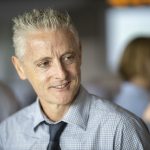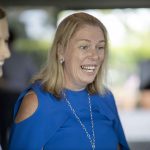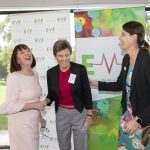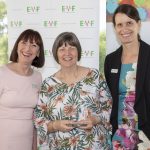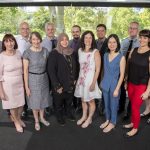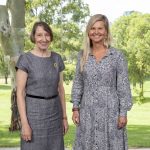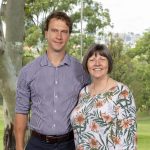Events
Grants Award Ceremony 2024
A new EMF research investment of $1.3 million to fund 22 projects was showcased at the Grants Award Ceremony 2024.
Projects include innovative ways to improve pain management in children, improving management of prisoners with minor orthopaedic injuries, treating diabetic patients, and optimising treatment for patients who call an ambulance for nausea or vomiting.
Associate Professor Luke Lawton, EMF Board Director and Townsville University Hospital Senior Staff Specialist in emergency medicine said the Foundation’s mission to improve the way people were cared for in a medical emergency underpinned the flavour of its research investment.
“Most of our EMF clinician-researchers are working health professionals with a frontline view of the issues,” A/Prof Lawton said.
“Every day, emergency medicine staff face challenges that need to be overcome to improve patient experiences and outcomes.
“EMF prioritises research which delivers demonstrable benefits to patients, staff and hospitals, and we educate and support emergency department staff to translate research outcomes into practice.”
For more information on how the EMF is making a difference, visit https://emergencyfoundation.org.au/.
- EMF Grants Awards Ceremony
REGISTER ONLINE
Experts gather in Brisbane
Emergency medicine experts including physicians, nurses, paramedics, allied health professionals, administrators and patient advocates have gathered in Brisbane to discuss the critical issues exacerbating emergency department (ED) wait times.
Close to 100 delegates travelled from across Queensland to attend the Emergency Medicine Foundation’s (EMF) research symposium, which showcased the latest research tackling ED congestion.
Professor Hugh Grantham, Emergency Medicine Foundation (EMF) Chair said the forum provided a rare opportunity for medical staff and managers from the state’s public hospitals to get together and discuss vital issues impacting patient care.
“EDs are the canary in the coalmine, where the coalmine is the whole health system,” Prof Grantham said.
“The problem of blockages shows up in ambulance ramping and long wait times, but this is a complex issue requiring whole-of-health system solutions,” he said.
“One of the biggest concerns for emergency medicine is how to enhance patient flow from arrival at an emergency department to treatment, potential admission, and finally discharge from hospital.
“There are also out-of-hospital factors including access to GPs and the need for more community care of vulnerable patient groups such as aged care and mental health patients.”
Speakers included EMF clinician-researcher, Associate Professor Manaan Kar Ray, Divisional Director (Mental Health), Princess Alexandra Hospital.
A/Prof Kar Ray’s EMF-funded SAFE STEPS project aims to decrease demand on emergency services by designing and assessing systems of care in the community.
“We are confident these systems can proactively identify and support deteriorating mental health patients before they reach ED,” A/Prof Kar Ray said.
“We saw a 66% decrease in ED presentations from patients engaged by the Acute Care Team in 2023 compared to the previous year.
“In January this year, the Mental Health section of Princess Alexandra Hospital’s Emergency Department clocked an impressive 1 hour 12 minutes average length of stay.”
A/Prof Kar Ray said SAFE STEPS would help understand how this was achieved and provide a blueprint for other EDs to replicate the success of Princess Alexandra Hospital.
Headlining the symposium was the $600,000 multi-agency patient flow project supported by EMF and Queensland Health. The study, which wraps up mid-year, is expected to reveal unprecedented insights into patient flow impediments.
Researchers are analysing data from 25 of Queensland’s largest public hospitals over six years, conducting interviews with staff and patients, and carrying out a comprehensive review of published literature.
The research covers the whole health system, including out-of-hospital influences and factors impacting on the patient journey in hospital.
Early results show solutions must come from hospital-wide and health system-wide reforms. Recommendations are expected to target issues such as discrepancies between peak demand for admissions and the timing of patient discharges, and alternative care for long-stay patients.
The research team includes CSIRO – Australia’s national science agency, Queensland Health, University of Queensland, and Queensland Ambulance Service.
A new EMF research investment of $1.3 million to fund 22 projects was also showcased on the day. Projects include innovative ways to improve pain management in children, improving management of prisoners with minor orthopaedic injuries, treating diabetic patients, and optimising treatment for patients who call an ambulance for nausea or vomiting.
Associate Professor Luke Lawton, EMF Board Director and Townsville University Hospital Senior Staff Specialist in emergency medicine said the Foundation’s mission to improve the way people were cared for in a medical emergency underpinned the flavour of its research investment.
“Most of our EMF clinician-researchers are working health professionals with a frontline view of the issues,” A/Prof Lawton said.
“Every day, emergency medicine staff face challenges that need to be overcome to improve patient experiences and outcomes.
“EMF prioritises research which delivers demonstrable benefits to patients, staff and hospitals, and we educate and support emergency department staff to translate research outcomes into practice.”
For more information on how the EMF is making a difference, visit https://emergencyfoundation.org.au/.
CAPTIONS:
- EMF Grants Awards Ceremony
2020 EMF Grants Award Ceremony
- Hui (Grace) Xu
- A/Prof Jaimi Greenslade
- Prof Marianne Wallis
- Queensland Health Director-General Dr John Wakefield PSM
- Dr Mark Edwards, Lifeflight
- Prof Diann Eley
- Dr Bronwyn Griffin
- Dr Amy Johnston
- Prof Julia Crilly
- Dr Nemat Alsaba
- Dr Steven James
- Dr Stuart Watkins
- Amanda Harley
- Qld Ambulance Service Acting Commissioner Michael Metcalfe ASM
- Dr Paula Conroy
- A/Prof Joshua Byrnes
- Queensland Mental Health Commissioner Ivan Frkovic
- Prof Gerben Keijzers
- Vanessa Funk
- Prof Marion Mitchell
- Prof Gerry FitzGerald
- Dr Paula Conroy
- A/Prof Martin Downes
- Dr Kim Hansen, Dr Andrew Spiller (centre), A/Prof Shane George
- EMF Board Chair Dr Kim Hansen
- EMF General Manager Dr Sonĵ Hall
- Champika Pattullo
- Dr Peter Snelling
- Dr Peter Isdale AM
- Dr Sean Clark
- Vanessa Funk and Brooke Charters
- Michael Metcalfe ASM, Prof Gerben Keijzers, Mike Bosel, Dr Sonĵ Hall
- Dr Sonĵ Hall, Professor Diann Eley, Dr Kim Hansen
- Dr Sonĵ Hall, Professor Diann Eley, Dr Kim Hansen
- Dr Sonĵ Hall, Ms Susanne Le Boutillier, Dr Kim Hansen
- Dr Sonĵ Hall, Professor Marianne Wallis, Dr Kim Hansen
- 2019 EMF Grant Award recipients
- Prof Marion Mitchell and Prof Julia Crilly
- Dr Barrie Field and Prof Marianne Wallis
2018 Grants Award Ceremony
EMF celebrated its grant recipients for 2017-18, with an award ceremony on Tuesday 13 March, in Brisbane. The event was an opportunity for EMF to publicly congratulate its recent grant recipients as well as celebrate ground-breaking research outcomes from its grants program.
Guest speakers at the event included Dr Mark Larsen from the Black Dog Institute, Professor Marianne Wallis from the University of the Sunshine Coast, and members of the FEISTY team: Dr Don Campbell, Mrs Elizabeth Wake and Dr Glenn Ryan.
Representatives from 17 of the 19 projects awarded grants in 2017-18 attended the ceremony, along with collaborators from QIMR, The University of Queensland, Queensland University of Technology, Griffith, the University Southern Queensland, the University of the Sunshine Coast, James Cook University and the University of Tasmania.
According to EMF Chair, Dr Anthony Bell, EMF’s grant recipients represented an important solution to the ever increasing demand on Australia’s emergency services.
“There is no simple solution to the complex issues contributing to more and more people relying on our emergency services,” Dr Bell said.
“However, we can all agree that governments need to address this escalating situation strategically and I strongly believe funding research is a key part of the solution.
“Queensland is unique in Australia. For the past decade, our State Government has funded acute care research via EMF. It’s the only government to provide dedicated funding for this area of health and in doing so it has enabled EMF to build a strong culture of acute care research in Queensland.
“Since our first grant round in in 2008, EMF has awarded 151 Queensland Research grants and scholarships totaling $14.27 million. We have also committed a further $2 million to funding a Research Support Network (RSN).
“Through its programs, EMF empowers and supports front-line clinicians, paramedics and allied health professionals to engage in clinically-relevant and collaborative research. Together, they are creating the solutions needed for more effective and efficient solutions to acute care and the healthcare system.
“The research by EMF-funded clinicians has led to outcomes which have been adopted clinically. Their work has brought about improvements in patient care as along with the State’s healthcare system, with economic analyses on just a handful of projects showing that they are delivering more than twenty million dollars in economic benefits to Queensland each year.
“EMF projects have also generated more than $45 million in leveraged, linked and follow-on funding as well as in-kind funding associated with them.”
Despite the Foundation’s success, Dr Bell said EMF future in Queensland was by no means guaranteed and the EMF Board and staff were working together to look at all funding opportunities, including talking with other state governments.
Dr Bell also encouraged clinicians to lend their support to the RSN, which he said was providing an important research infrastructure in Queensland.
Launched in late 2015, the RSN has people on the ground directly supporting eight of Queensland’s Hospital and Health Service (HHS) districts, while the RSN Manager was supporting clinicians interested or participating in research in the other eight HHS.
According to Dr Bell, the RSN has led to 11 emergency departments implementing research plans, a significant increase in research activity and national and international research collaborations.
“EMF has committed more than $2 million from its reserves to funding the RSN. However, we don’t have the funding to continue fully supporting the network and we’re speaking with the HHSs as well as other stakeholders.
“If you value the RSN, I strongly urge you to lend your support to EMF’s proposals and lobby your HHS to help support this valuable initiative.”
Pictured above: The 2017-18 EMF grant recipients and/or research team members at the ceremony
Trainee grants: Dr Kerina Denny & Dr Volha Pankevich; Staff Specialist grants: Dr Katherine Isoardi, Prof Louise Cullen, Dr Ben Lawton, Dr Jason Chan, Mr Peter Gilies (for Dr Alex King), Dr Pieter Nel (for Dr Sarah Boxall), Dr Rob Eley (for Dr Tina Bazianas) & Dr Rose Jones; Project grants: Dr Mark Edwards, Dr Shane George (for Dr Christa Bell), A/Prof Luregn Schlapbach (for Dr Peter Snelling), Prof Gerben Keijzers, Ms Leanne Diggelman ( for Dr Natalie Phillips) & Prof Marianne Wallis (for Dr Elizabeth Marsden); Capacity building grant: Dr Alan Yan (for Redcliffe Hospital).
Talks given at the ceremony
EMF Chair: Dr Anthony Bell
Professor Marianne Wallis
Dr Mark Larsen
Dr Don Campbell, Mrs Elizabeth Wake, and Dr Glenn Ryan
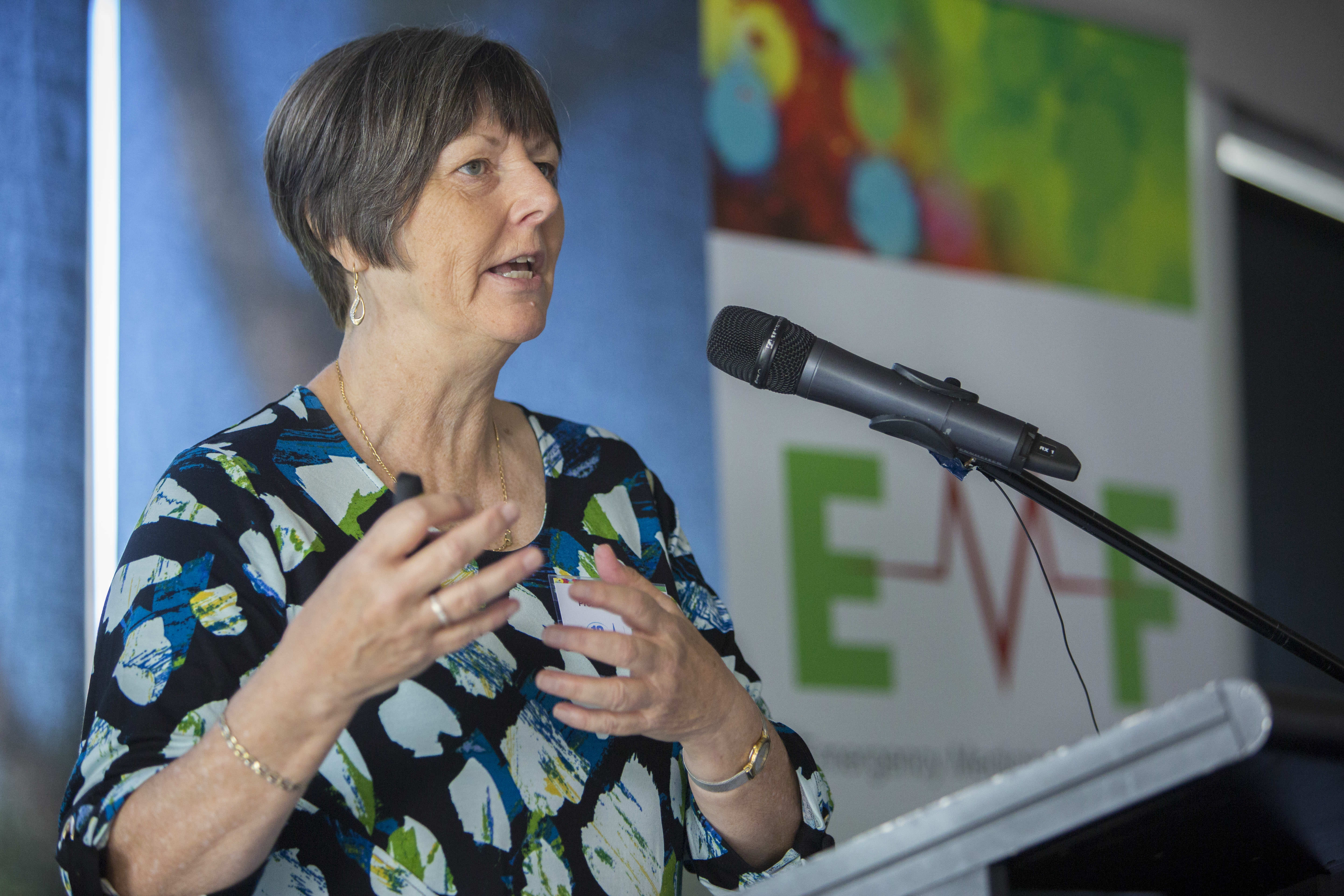
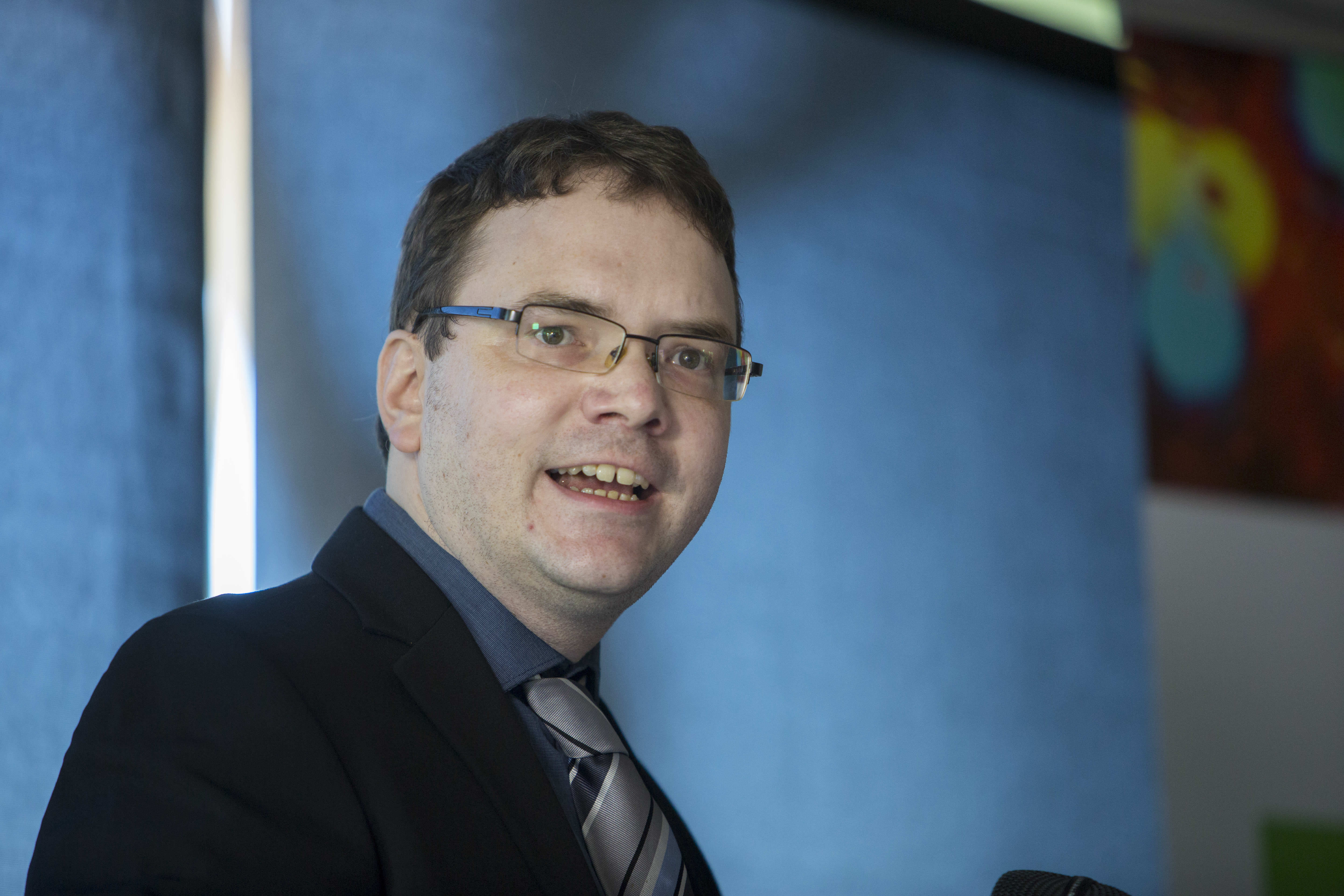
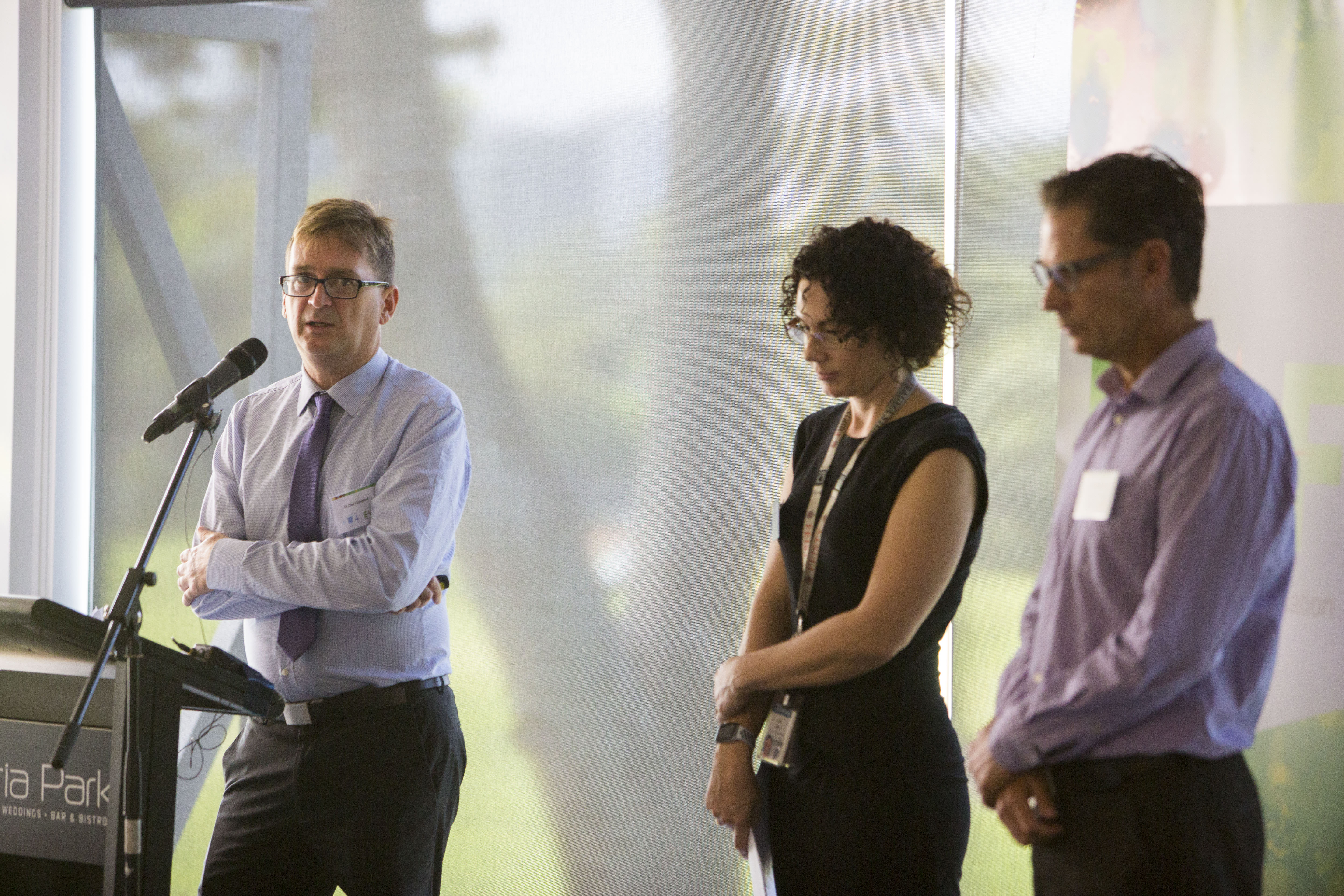
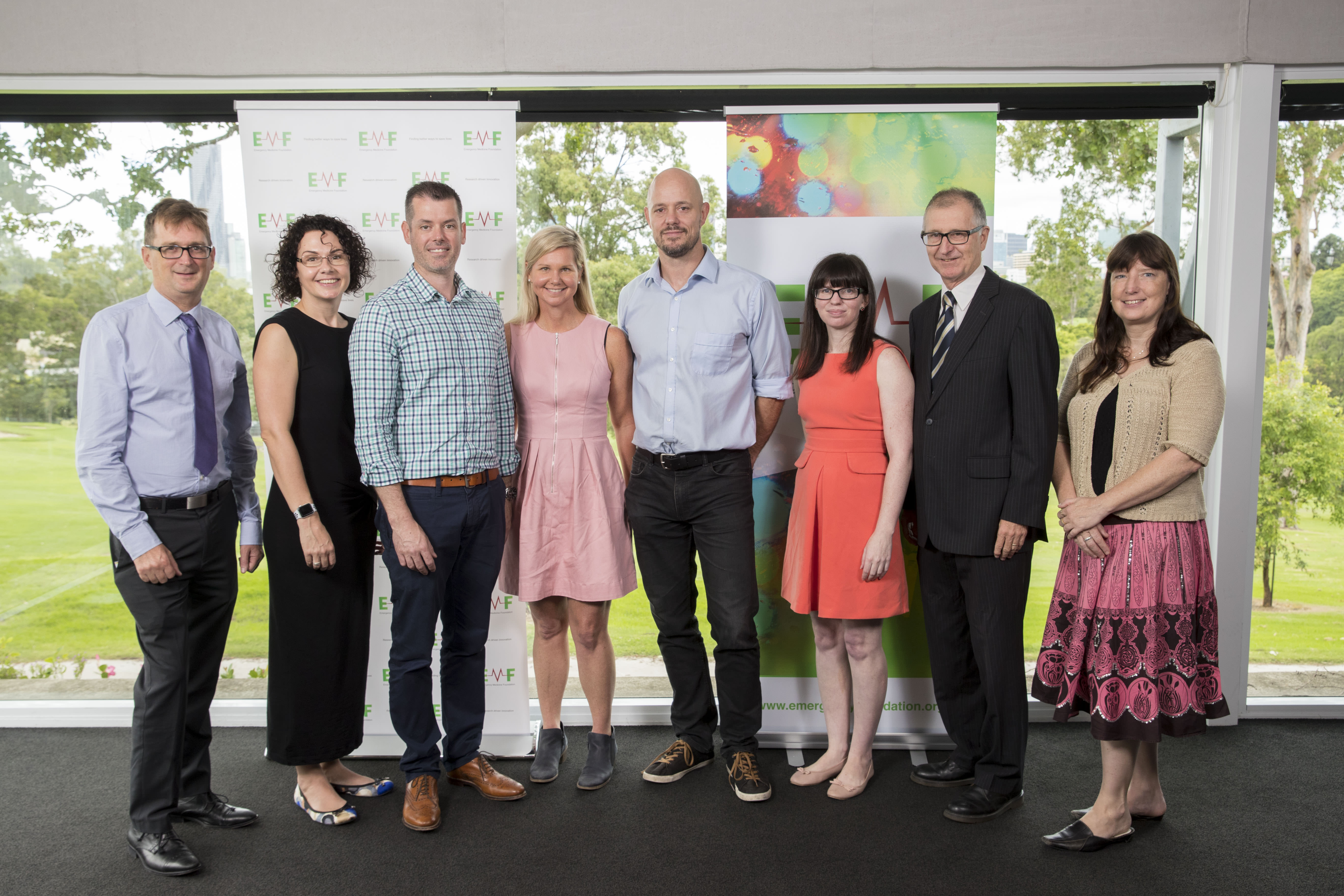
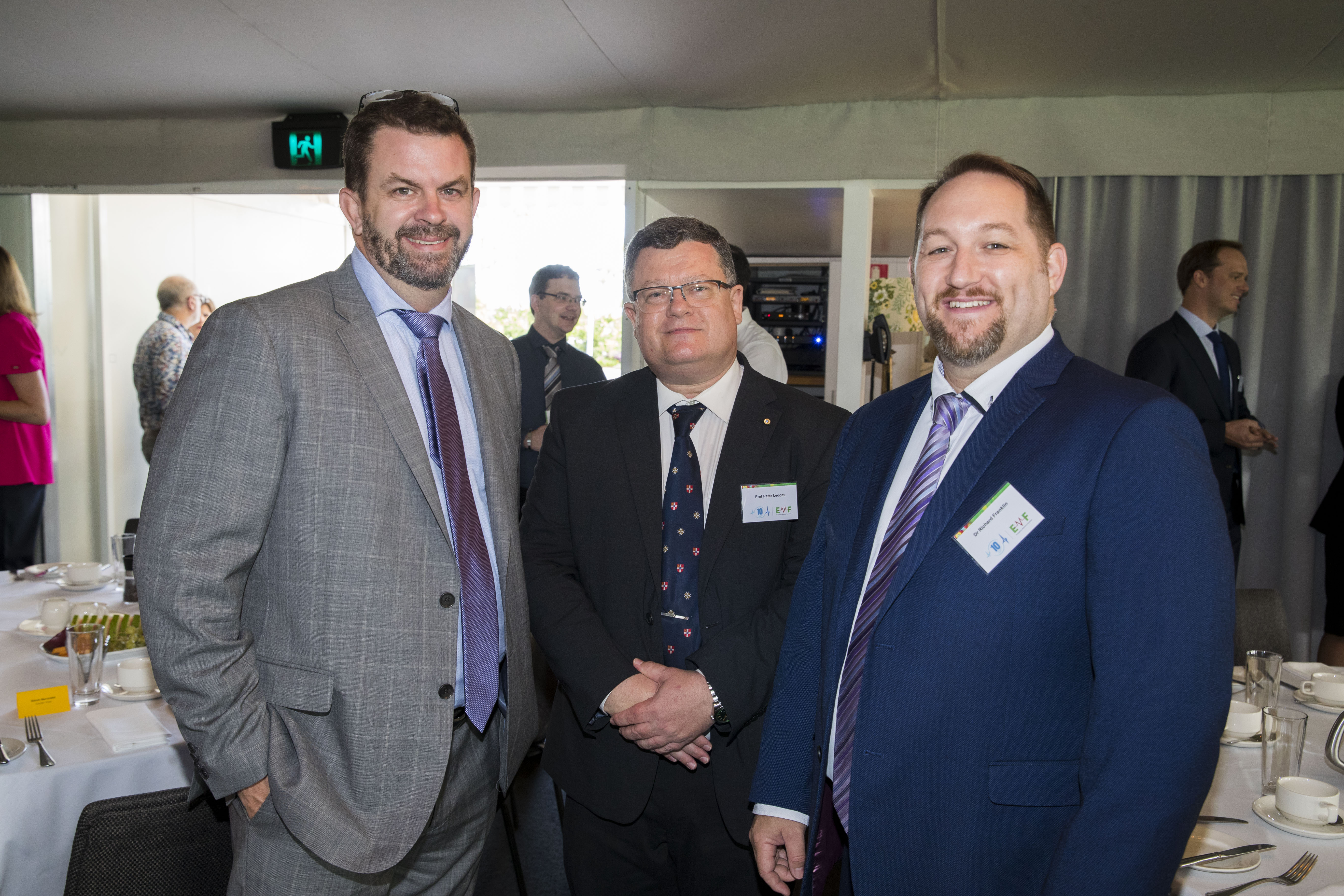
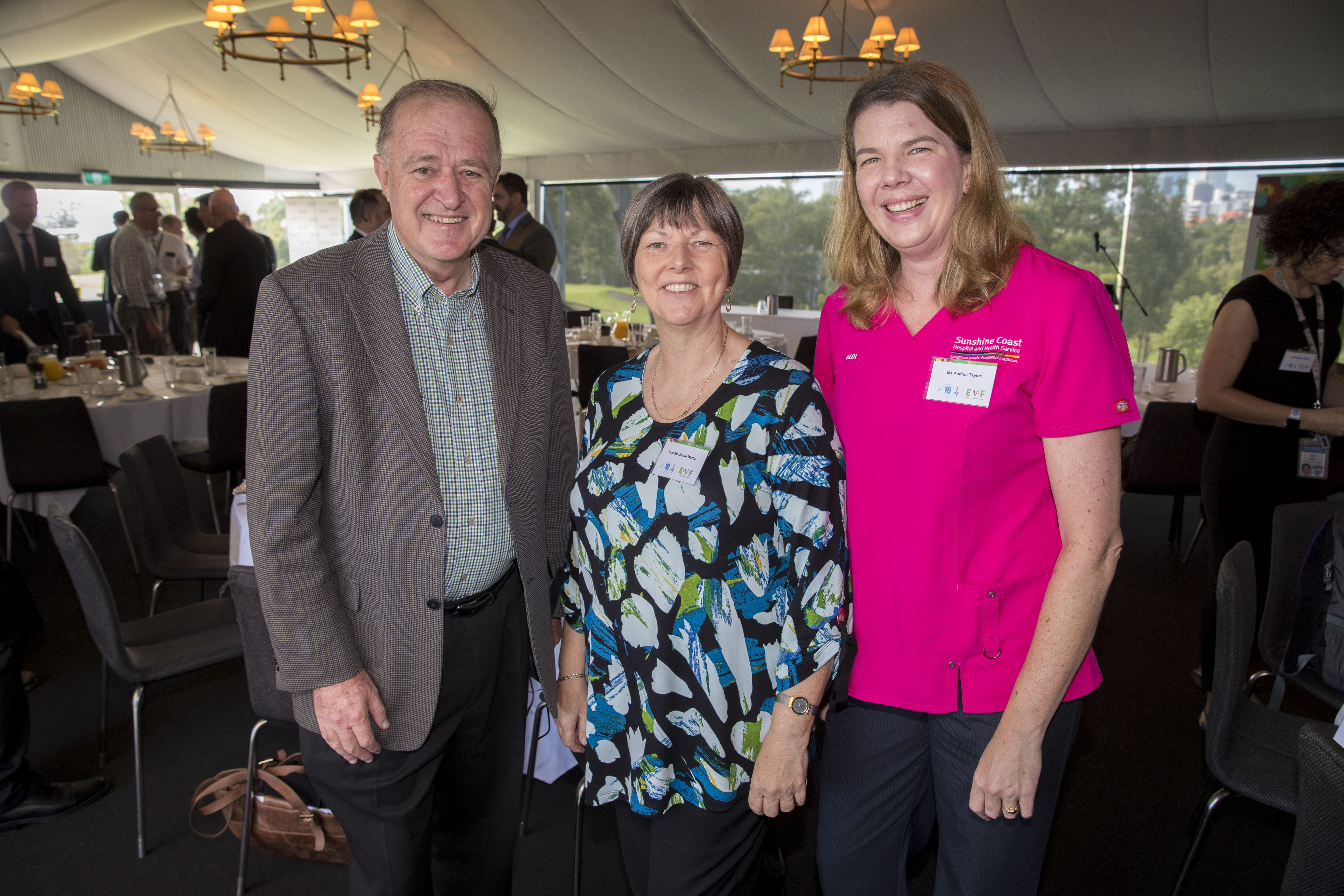
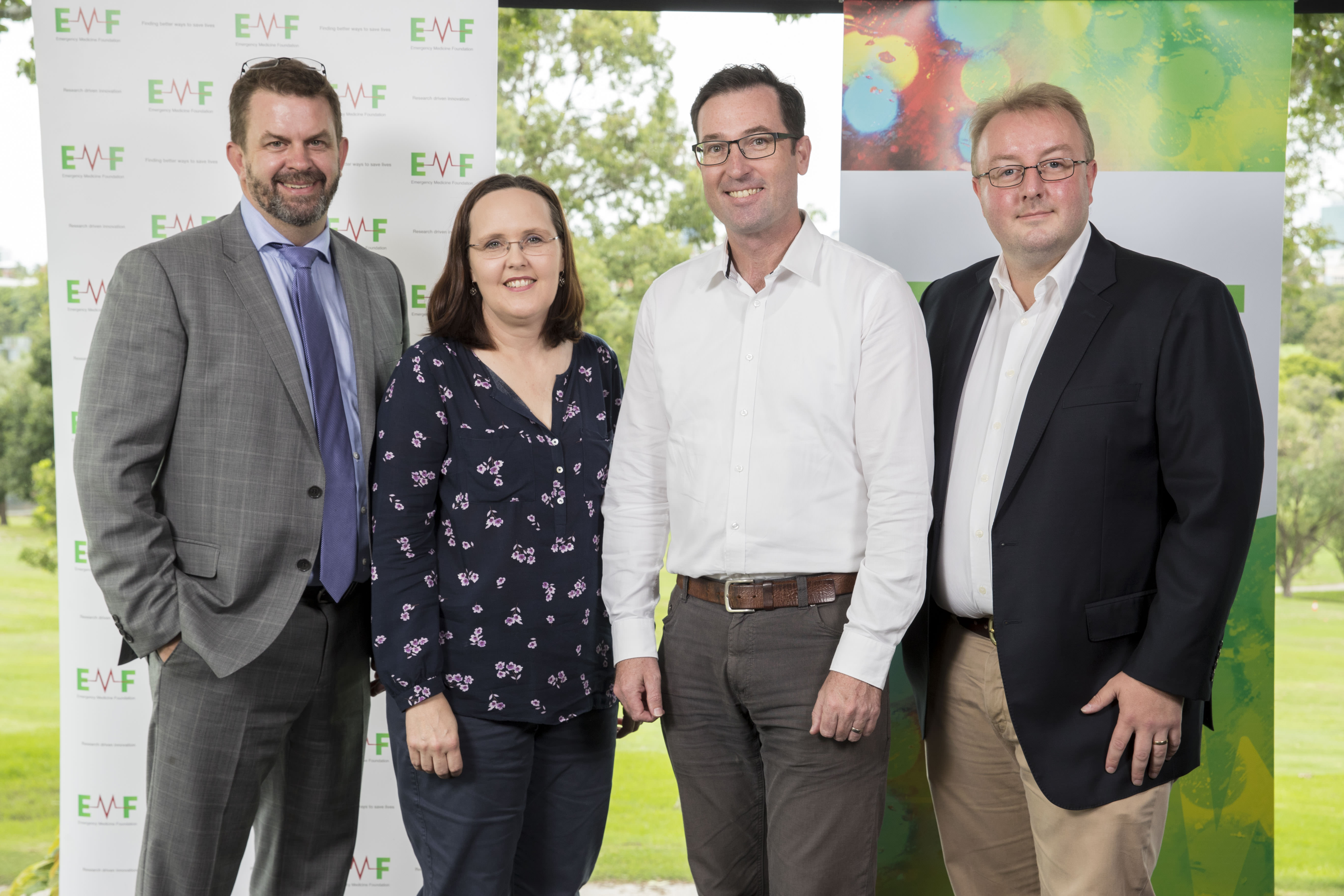
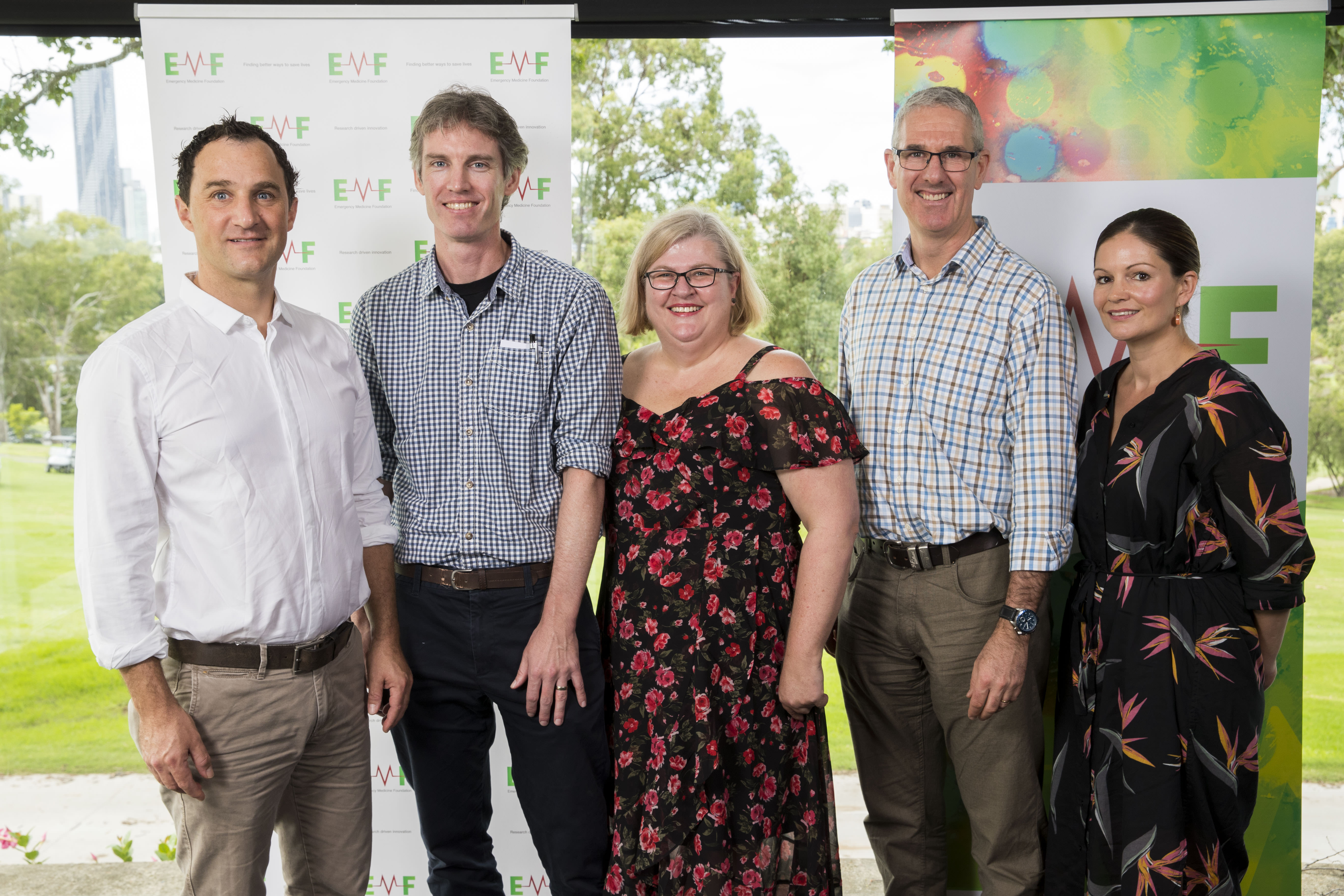
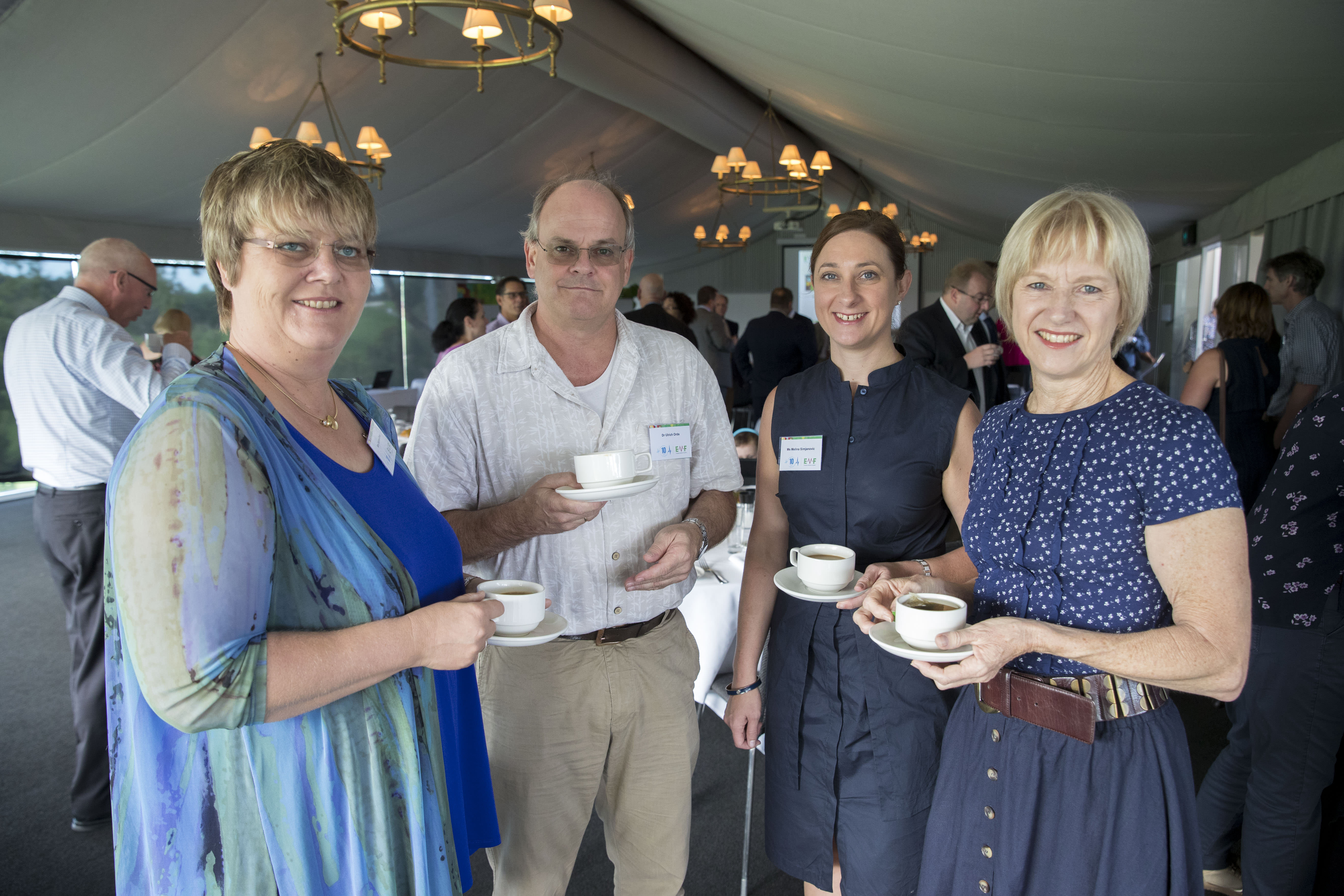
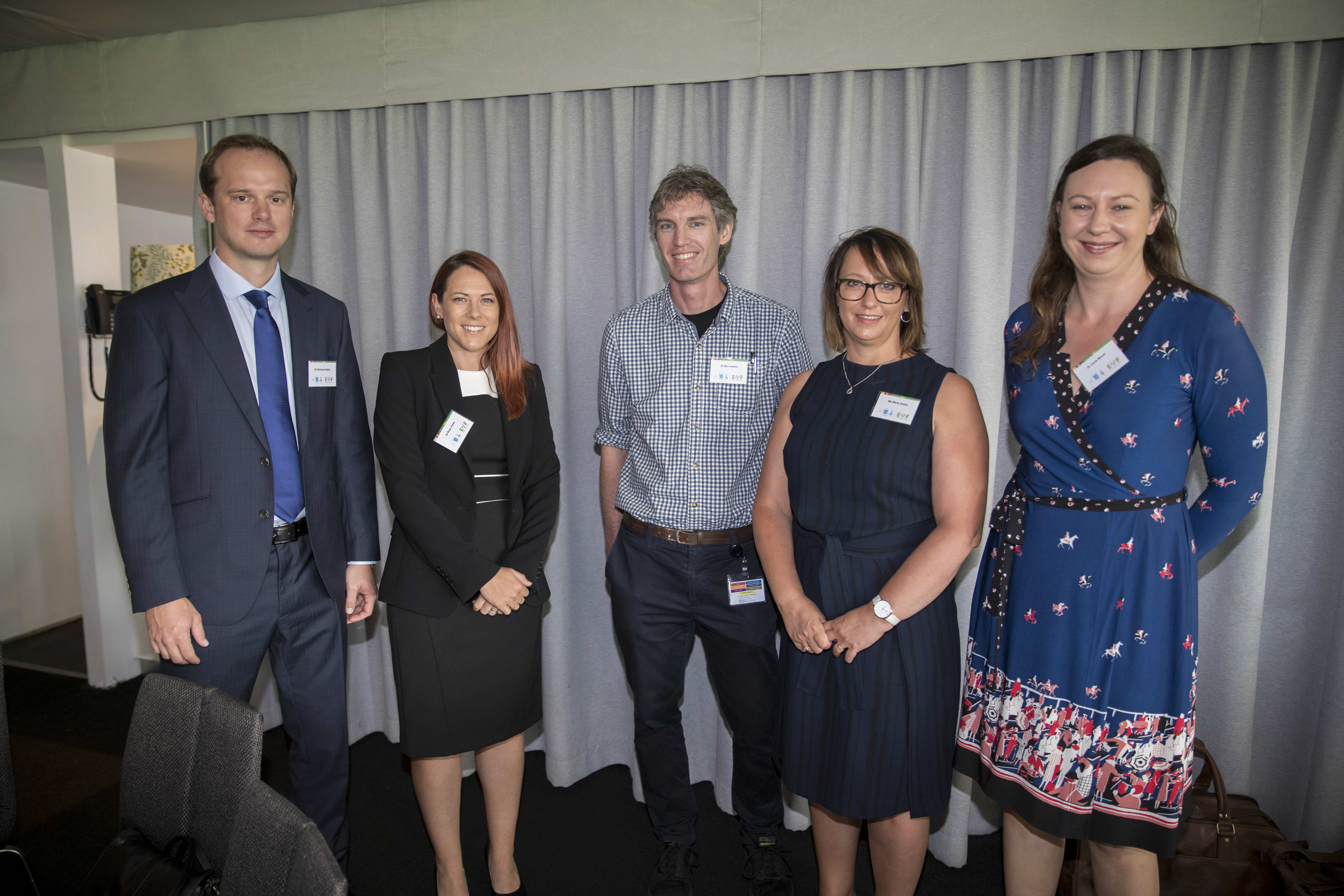
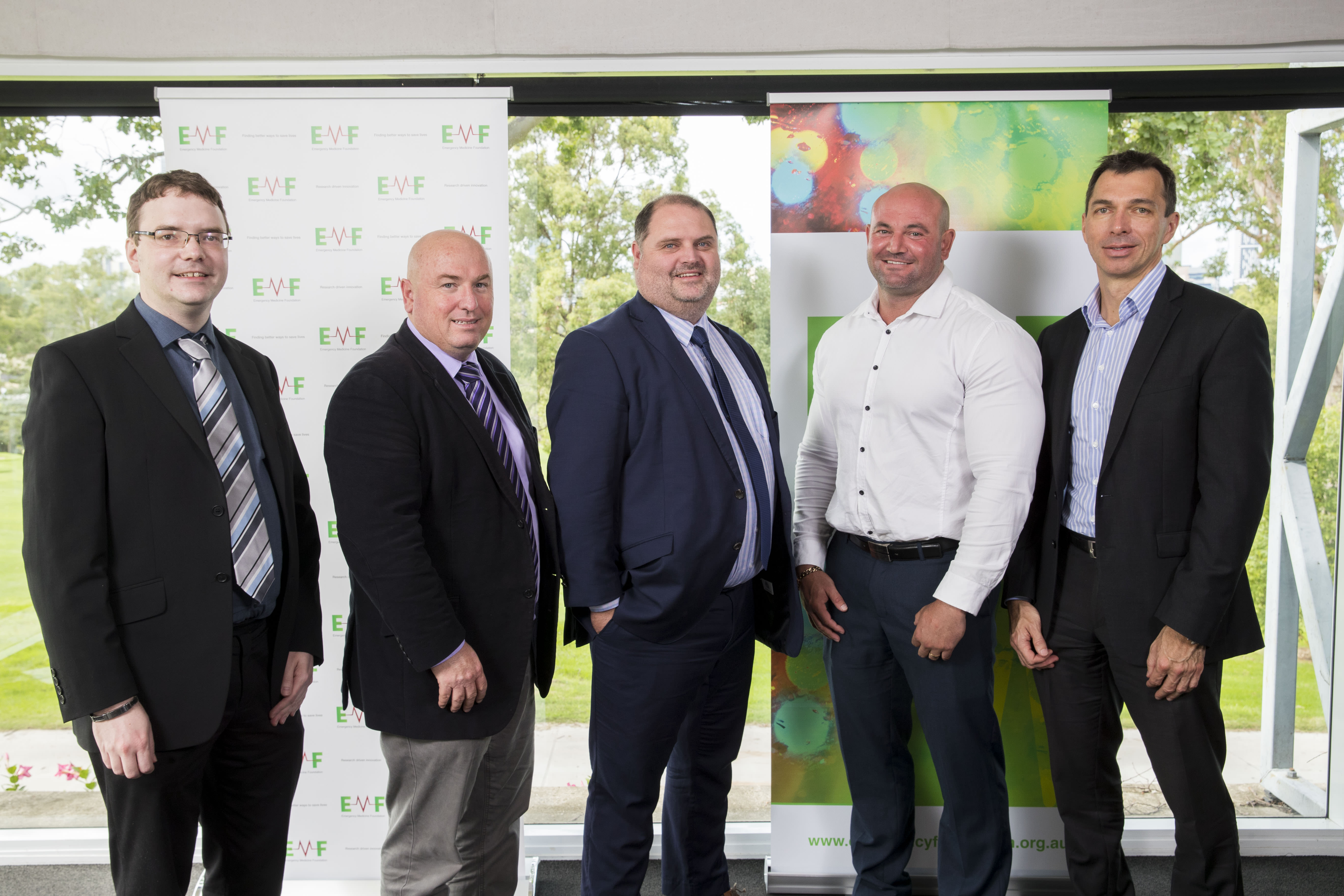
REGISTER ONLINE
Plan to translate your research
Not sure how to translate your emergency medicine research? EMF is here to help.
We’ve engaged Dr Tamika Heiden to lead a three hour interactive workshop on 13 March 2018. This workshop will help transform and maximise your emergency medicine research impact through knowledge translation.
Tamika is an experienced and engaging expert, who will walk you building your own tailored knowledge translation plan, which you’ll be able to use within grant applications and research proposals.
This facilitated session is specifically designed for you to bring your current research ideas or projects, or a new idea and project and to work on your plan.
REGISTER ONLINESepsis research could improve survival
Sepsis and septic shock are one of the leading causes of death in hospital patients worldwide, but new research by Australian emergency medicine clinicians could lead to better survival rates.
With funding from the Queensland Government, the Emergency Medicine Foundation (EMF) awarded Dr Julian Williams a $90,056 research grant to improve the early identification and treatment of septic shock.
Sepsis causes more deaths than prostate cancer, breast cancer and HIV/AIDS combined.1,
Each year, there are about 15,000 cases of severe sepsis and septic shock in Australian and New Zealand intensive care units.2
Septic shock occurs when a body-wide infection causes blood pressure to drop too low. Any type of bacterial, fungal or viral infection can led to sepsis and then septic shock, but the illness mostly affects children and the elderly.
Dr Williams, who is an Emergency Medicine Department Staff Specialist at the Royal Brisbane & Women’s Hospital, and his research team identified 399 septic shock patients admitted to Queensland emergency departments.
They then determined the characteristics, treatment and outcomes for these patients.
The team found that patients treated earlier and with greater volumes of intravenous fluid and early vasopressor therapy (treatment that raises blood pressure) had better survival rates.
Dr Williams said that the research data could help reduce invasive therapies and costly ICU admissions for patients with septic shock.
Since 2008, EMF has invested $421,414 in sepsis research, which included the establishment of a sepsis registry by Dr Williams.
- World Sepsis Day Organisation [internet] 2014. [cited 2014,March 31] Available from: http://www.world-sepsis-day.org/
- Finfer S, Bellomo R, Lipman J.,“Adult-population incidence of severe sepsis in Australian and New Zealand intensive care units”, Intensive Care Medicine 2004; 30:589-596.
Stock image used.
REGISTER ONLINE